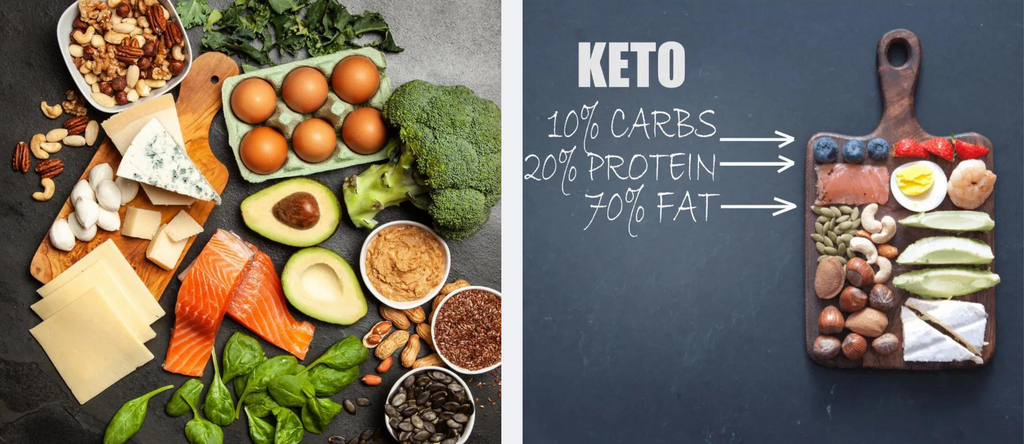According to World Health Organization, about 1 Billion people in the world will be obese by 2030.
Obesity continues to remain a major worldwide health problem with a mortality rate as high as 2.8 million per year. The majority of chronic diseases like diabetes, hypertension, and heart disease are largely related to obesity. The main reason is usually an unhealthy lifestyle and poor dietary habits.
There have been many tailored diets for weight loss, the most recent hype is Keto Diet. So let us take a closer look into the benefits and risks of being on the keto diet and is it the right choice for you.
What is Keto Diet?
A ketogenic diet primarily consists of high fats (55-60%), moderate proteins (35%), and very low carbohydrates (5-10%).
How Does it Work?
Basically, sugars are the primary source of energy production in the body. When the body is deprived of carbohydrates (sugars) due to reducing intake to less than 50g per day, insulin secretion is reduced and the body enters a catabolic (breakdown) state. When there is low carbohydrate your liver starts producing glucose in the form of lactic acid, glycerol, and amino acids to provide the body with its sugar need, but as the sugar level continues to decrease liver cannot keep up with the demand of the glucose, that is when ketogenesis starts (breakdown of fats). It begins in order to provide an alternate source of energy in the form of ketone bodies. Ketone bodies replace glucose as a primary source of energy. This metabolic state is referred to as "nutritional ketosis." As long as you deprive yourself of carbohydrates, the metabolism remains in the ketotic state. The nutritional ketosis state is considered quite safe, as ketone bodies are produced in small concentrations without any alterations in blood pH. It greatly differs from ketoacidosis, a life-threatening condition where ketone bodies are produced in extremely larger concentrations, altering blood pH to an acidotic state.

What is the risk of the Keto diet that I should worry about?
When you’re eliminating certain food groups (like fruits, legumes, and whole grains), severely limiting others (like many vegetables), and increasing fats contents you will have the following.
- Increases risk of heart disease
- Increases risk of kidney stones
- Several vitamin and mineral deficiencies
- Decreased bone mineral density
- Gastrointestinal distress (Constipation)
- Dehydration (initially)
- Decrease longevity
Benefits of the Keto Diet?
Just keep in mind there are no good studies to provide long-term effects.
- Rapid weight loss
- Better glycemic control and decrease in HGA1c
- Decrease in triglycerides and increase in HDL (the good cholesterol)
- Decrease the occurrence of seizures
- Better memory
- Increase energy level

Is the keto diet for everyone? NO
The following group of people should avoid the keto diet.
- People with increased risk or diagnosed with heart disease
- People with high cholesterol.
- People with Diabetes type I
- People with a history of Eating disorders
- People with their gallbladder removed
- People with thyroid disorders
- People with multiple sclerosis
If you’re looking to lose weight, and want to start the keto diet, please talk to your healthcare provider first. keep in mind that the diet likely requires a complete change to the way you normally eat.
Keep in mind no matter what kind of diet you want to start it is all about total calories, just because you are on the keto diet and consume 5000 calories per day doesn’t mean you are going to lose weight (calories in calories out).

